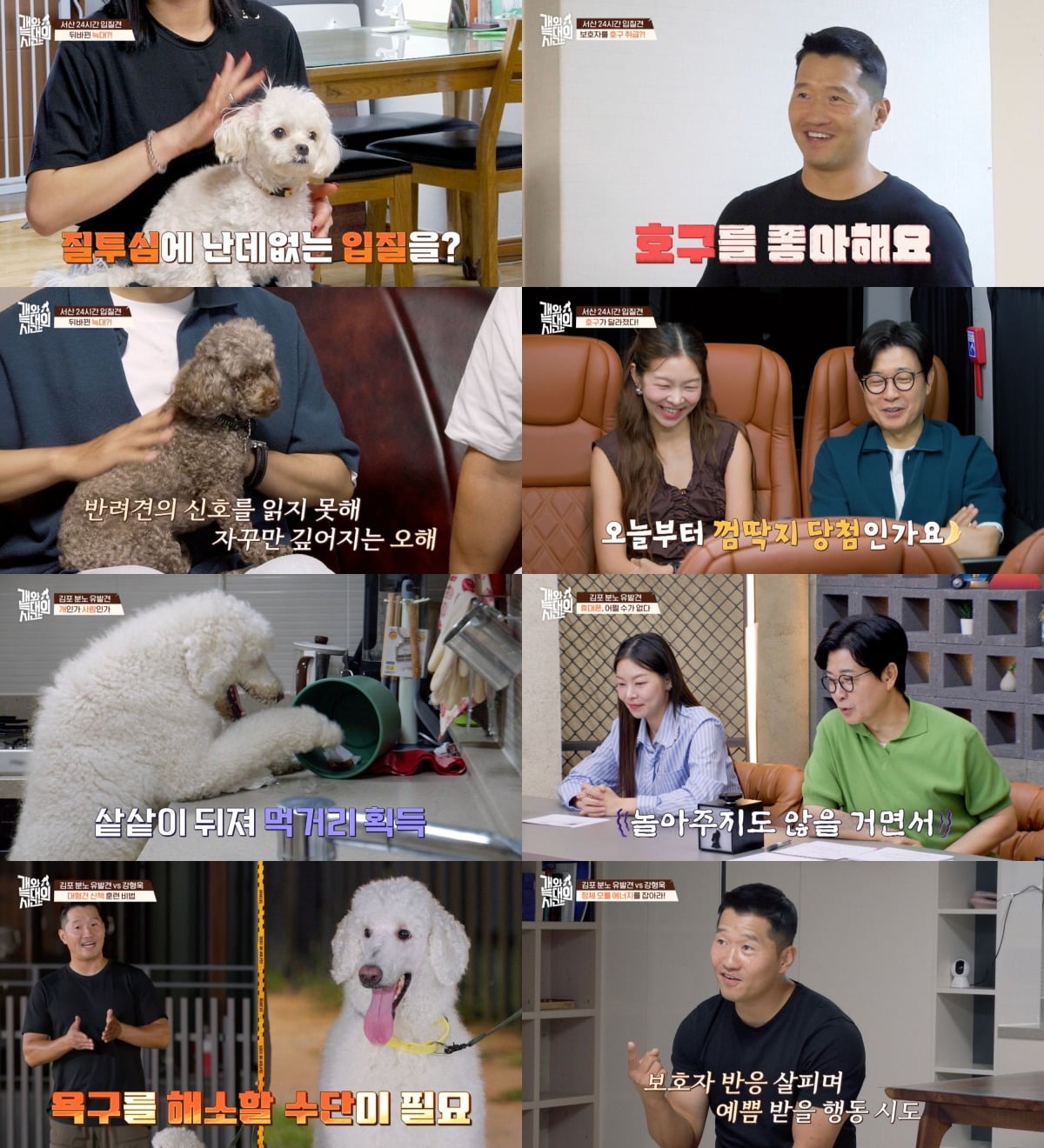TV
Dog Trainer Kang Hyung-wook Resolves Canine Issues on 'Time of Dogs and Wolves'

The 9th episode of Channel A's variety show, aired on the 30th of last month, highlighted the importance of rebuilding the broken relationships between dogs and their families through the stories of a biting dog from Seosan and an anger-inducing dog from Gimpo.
The notorious 24-hour biting dog from Seosan surprised everyone with an unexpected twist. Kang humorously referred to the issue as an 'IC disease,' but it was not the biting dog that was the problem—it was the sibling dog. The sibling dog displayed a typical pattern of bullying the weak while being submissive to socially adept dogs, yet it was aggressive towards the timid and sensitive biting dog.
Kang focused his solution on mending the relationship with the mother guardian. For the fearful and easily excited biting dog, spending time together was more important than coercion or haste. As the emotional distance gradually closed, the biting dog approached the mother guardian on its own. The mother's tense expression also began to relax. With the family sharing responsibilities and the mother approaching gently, the biting dog soon followed her closely.

After observing 'Wolf No. 3' closely, Kang identified loneliness as the root of the problem. He noted, "The dog is smart enough to be a detection dog." The anger-inducing dog grew increasingly lonely as it signaled for attention with toys, only to be ignored by family members engrossed in their phones, leading to repeated attention-seeking behaviors. Commentator Kim Sung-joo remarked, "Wolf No. 3 must have been really lonely, like unrequited love."
Kang recommended increasing the walks from three times a week to daily. The key was not just burning energy but spending quality time with the guardian. He also taught the mother guardian play techniques to foster consistent interaction. As the guardians invested time and effort as advised by Kang, noticeable changes occurred in the anger-inducing dog's behavior.
Though the behavioral issues differed, the core of both solutions was the same: understanding the dog's personality and altering the way of interaction. This was the first step in bringing the problematic dogs back into the family fold.
Reported by Se-yoon Jung, TenAsia yoon@tenasia.co.kr



